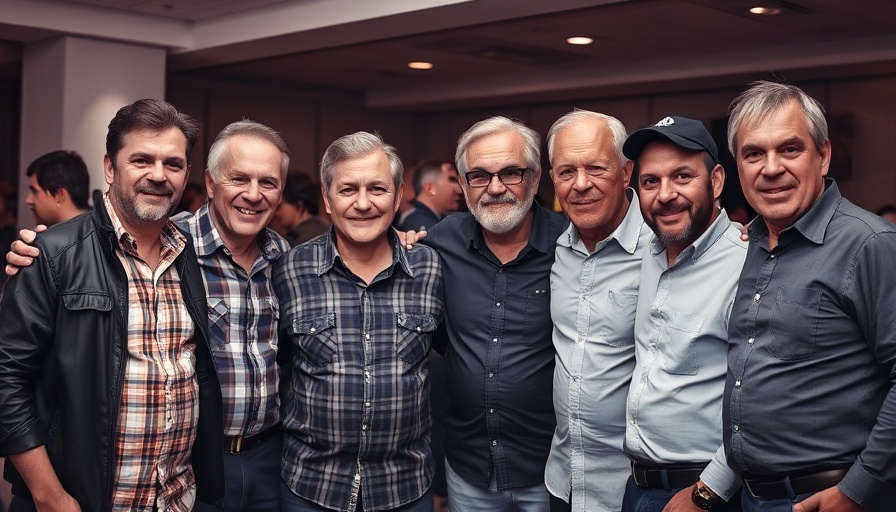
The Legacy of Team Romeo: Honoring the Fallen First Responders
On the fateful day of September 11, 2001, the Port Authority Police Department (PAPD) embarked on a mission that would resonate through history—the rescue and recovery operations at the World Trade Center. Among those who answered the call were the members of Team Romeo, a collective of retired police officers who played a pivotal role during those harrowing days. Their selfless dedication not only showcases the bravery inherent in law enforcement but also highlights the ongoing need for community trust and officer wellness initiatives in policing today.
Understanding the Formation of Team Romeo
Team Romeo emerged as a crucial group of retired PAPD officers who volunteered their time and expertise in the aftermath of the attacks. Their journey began when retired Lieutenant Tony Zeoli stepped forward to lead the team, bringing together a diverse group comprising a retired sergeant and ten fellow officers. Each member had personal motivations tied to their history with the PAPD and a deep-seated urge to honor their fallen comrades—the 37 PAPD officers lost that day.
Retired Chief Joseph Morris played a decisive role in forming Team Romeo, recognizing that their unique experiences made them fit for the grim realities they would encounter. Morris’s decision highlighted a broader consideration within policing strategies: the balance between manpower needs and the emotional welfare of officers facing trauma. By deploying experienced officers, he sought to preserve institutional knowledge passed down through years on the force while addressing an urgent need at the recovery site.
Community Impact: Lessons from Team Romeo
Team Romeo's story imparts valuable lessons in public safety and community engagement. The officers not only engaged in rigorous recovery tasks but also served as symbols of resilience, stepping beyond their roles as law enforcement to support a collective mourning process. Their commitment illustrates a profound truth in public safety: the success of emergency response goes beyond logistics; it requires forging strong connections with the community.
In building a culture of trust, reporting mechanisms, and accountability are crucial, but so are initiatives that engage citizens in safety efforts. Team Romeo exemplifies how personal investment can strengthen the community-police relationship, reminding city leaders of the importance of continuous engagement with the public.
The Modern Echo: Policing Ethics and Public Safety
The legacy of Team Romeo also reverberates through current discussions on policing ethics and reform. Their response highlighted not only tactical proficiency but also the readiness to confront immense emotional challenges—a consideration policymakers must address today. As we integrate advanced policing technology such as body cameras and surveillance systems, the insights drawn from Team Romeo's experience can guide the ethical implementation of technology in law enforcement.
Furthermore, conversations around officer mental health initiatives are gaining momentum. The exposure faced by Team Romeo and the persistent health issues that followed underline the need to support officers unconditionally while nurturing a culture that prioritizes psychological resilience alongside physical health.
Conclusion: The Road Ahead for Law Enforcement
As we honor the brave members of Team Romeo, we must also reflect on the larger framework of much-needed policy reform that addresses the realities of community engagement and officer wellness. The courage that drove these retired officers to the heart of destruction reflects the spirit that can catalyze effective changes in law enforcement today. From improved training programs to strategic recruitment initiatives, the effort to build trust metrics within communities must continue.
In light of their service, let us prioritize meaningful dialogue on public safety innovations, ensuring that every effort aligns with the principles of accountability, ethical governance, and community trust.
 Add Row
Add Row  Add
Add 

 Add Element
Add Element 


Write A Comment